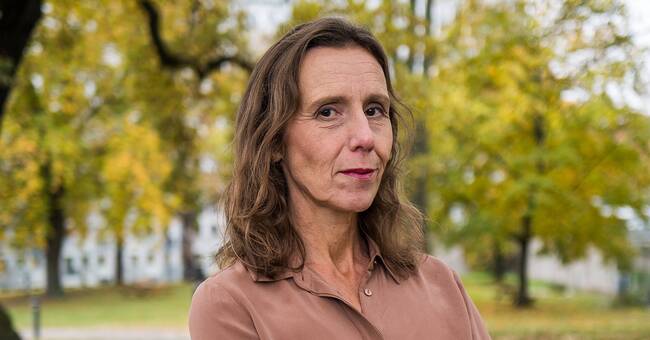But just during the climate summit itself, 170 million tonnes of oil are being pumped up in the world.
The price of oil - as well as energy in general - has soared to levels well above those that prevailed before the panemic.
Here in Sweden, the petrol price is approaching SEK 20 per liter.
An everyday economic disaster for some, not just in Sweden.
Exactly at the same time, outside the fossil-free universe of the Glasgow Summit, the following is therefore happening:
The US government accuses the oil-producing Arab countries' organization Opec of holding back oil production so that prices rise, and urges both Opec and Russia to pump up more oil.
The CEO of one of the world's largest oil companies, BP, calls the company a "money machine" when he presents the quarterly results.
Other oil giants have also reported sharply rising results.
The share dividend from the world's largest oil company, Saudi Aramco, will be SEK 640 billion this year.
That alone would be enough to cover the 100 billion dollars, or 850 billion kronor, that the world's poor countries demand and which are also discussed in Glasgow today.
Banks stop lending to oil production
Last spring, when the world economy stalled, both demand and oil prices plummeted.
The world's oil production fell for the first time in a very long time, as did the world's total carbon dioxide emissions.
It aroused some hope here and there when it comes to the climate.
The politicians around the world who threw out corona grants also made increasing efforts to steer as much of it as possible to investments needed for climate change.
But the truth is that - of course - at the same time even more money went into keeping our current economy going.
And it's fossil.
Now it rolls relentlessly on again.
In the meantime, much has happened in terms of public opinion, politics and capital.
Large asset managers who must take into account their savers' climate awareness get rid of shares in fossil fuel companies.
The oil companies sell production assets.
Banks, including several of the major Swedish banks, stop lending to new oil production.
But our economic reality is still essentially fossil.
Admittedly, electric cars sell like never before, and electric car shares are valued sky-high on the stock exchange, unlike the usual car giants.
But the majority of the cars on the roads in the world will still be powered by petrol or diesel even in ten years, as it looks now.
More expensive petrol in the long run
Internationella Energiorganet IEA räknar med flera scenarier när den bedömer oljebehovet framöver. Även i det, för klimatet, mest framgångsrika, där politikerna har fattat beslut som gör det möjligt att nå netto noll-utsläpp till 2050, så behövs det fortfarande år 2030 en miljon ton olja per dag för bensin och diesel till våra personbilar.
So: there is money to be made on oil for a while longer.
Especially for those who avoid transparency via the stock market and pension savers, such as the hedge funds that now buy up oil assets from oil companies and others who want to take them over.
And of course the dictatorships that control a large part of the world's oil production for so long.
It is difficult to control or stop oil production.
It remains, as the IEA, among others, points out in its latest report, to dampen demand.
Which can only mean even more expensive gasoline in the long run.

